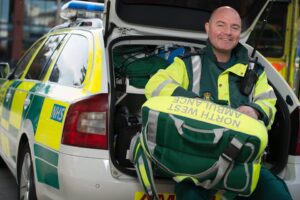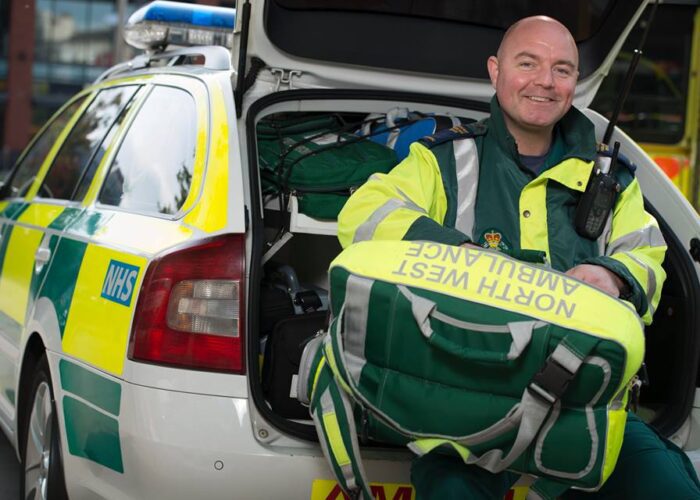
Traffic police in Merseyside have been given a new piece of life-saving kit.
The North West Ambulance Service has donated a total of 30 defibrillators to Merseyside Police’s roads policing department.
Roads and motorways in Merseyside are set to become a lot safer as traffic officers have also been trained how to use the defibrillators.
The lead-up to the festive season may see an increase in incidents where basic life-saving and defibrillation are required at the site of an accident.
The aim is to give first responders, such as the police, the tools they require potentially to save a life at the scene of a traffic collision accident before the paramedics arrive.
The Automated External Defibrilators (AEDs) can increase the chances of survival for a person who has suffered a sudden cardiac arrest by 40%.
Over the past 12 months there were 22,740 cardiac-related incidents in the Merseyside region, highlighting the difference this scheme could make.
St Helens councillor Michael Haw told JMU Journalism: “I think they will make a massive difference.
“They are a vital component in the chain of survival. The argument against defibrillators is that they would not be used often and need special training.
“But, they are easy to use and ultimately save lives.”
He added: “Another positive in my view is that since more and more of these devices have been installed, more and more people, especially young people are being taught the basics of first aid which is another vital component in the chain of survival.”
The equipment is small and portable and can be used to check a person’s heart rhythm.
If the rhythm indicates a cardiac arrest, the defibrillator sends an electric shock to the heart to restore a normal rhythm.
A sudden cardiac arrest is fatal in 95% of cases but rapid use of a defibrillator can be life-saving.
Inspector Joe Danher from the roads policing unit, said: “Time is absolutely crucial in treating someone suffering cardiac arrest and it can come down to a matter of seconds whether someone lives or dies.
“Police officers often arrive at the scene of a serious incident first and having a defibrillator in their police car will really help them give basic but potentially life-saving treatment before the medical experts arrive.”
The defibrillators will be put into thirty traffic cars used by the Merseyside road policing department.
Robert Sharples, Community Resuscitation Development Officer, North West Ambulance Service, said: “Enhancing police life-saving training and placing defibrillators on their vehicles means that officers – who are regularly out and about in the community – can save the life of someone who is suffering from a sudden cardiac arrest until we arrive on the scene.”

